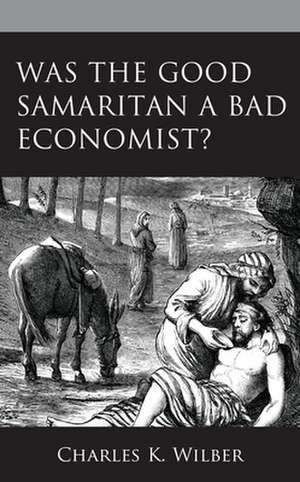Was the Good Samaritan a Bad Economist?
Autor Charles K. Wilberen Limba Engleză Hardback – 10 mai 2021
Preț: 687.15 lei
Preț vechi: 892.41 lei
-23% Nou
Puncte Express: 1031
Preț estimativ în valută:
131.48€ • 137.65$ • 108.80£
131.48€ • 137.65$ • 108.80£
Carte tipărită la comandă
Livrare economică 05-19 aprilie
Preluare comenzi: 021 569.72.76
Specificații
ISBN-13: 9781793637000
ISBN-10: 1793637008
Pagini: 268
Dimensiuni: 152 x 229 x 26 mm
Greutate: 0.56 kg
Editura: Rowman & Littlefield
ISBN-10: 1793637008
Pagini: 268
Dimensiuni: 152 x 229 x 26 mm
Greutate: 0.56 kg
Editura: Rowman & Littlefield
Notă biografică
Charles K. Wilber is emeritus professor of economics and fellow, Joan B. Kroc Institute for International Peace Studies at the University of Notre Dame.
Descriere
Economics is imbued with individualistic values that result in an economy marked by extreme inequality that in turn restricts social mobility and further marginalizes the poor. Catholic social thought provides the moral values required to help make economics capable of building an economy that serves all, rich and poor alike.
